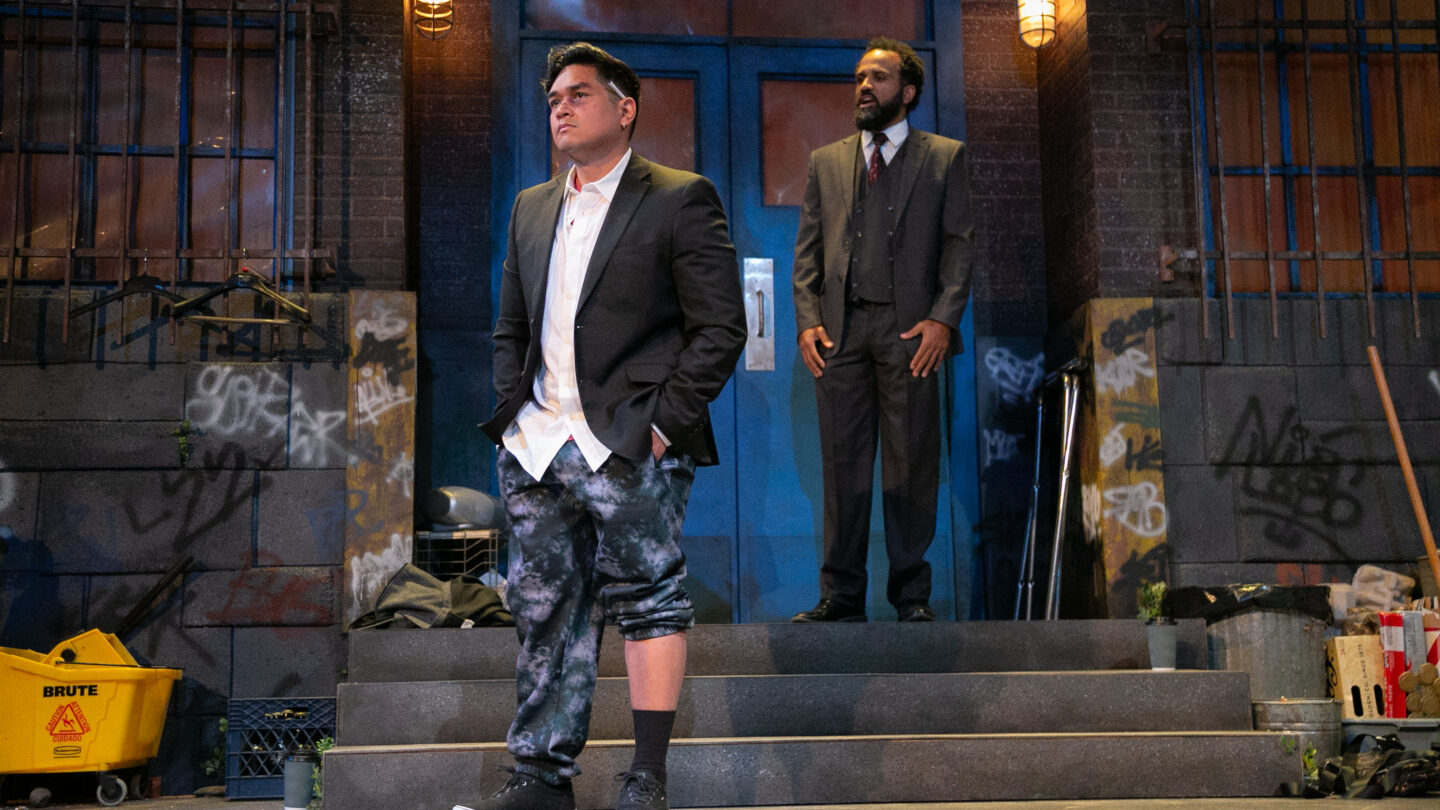In Ike Holter’s “The Wolf at the End of the Block,” we’re transported to a fictional Chicago neighborhood riled up by a late-night attack on one of its residents. The modern-day neo-noir play looks at the realities of Chicagoans’ mistrust of the police. The Atlanta premiere of the play is on stage now at Theatrical Outfit through April 24. Director Addae Moon and actor Erika Miranda joined “City Lights” host Lois Reitzes via Zoom to talk more about the moody mystery of “Wolf at the End of the Block.”
Interview highlights:
A story of conflicting narratives:
“The main character is a young man named Abe who gets into an altercation at a bar, and the majority of the play is us, as the audience, trying to figure out the details of what happened during this altercation at a bar. We find out that there are a lot of different perspectives on what happened,” said Moon.
“In the interim, we also learn a lot about this young man, his personal struggles,” Moon continued. “He just lost two of his parents. He’s been taking care of his sister, and his very close friend Nunley is helping him stay afloat by giving him a job. I think the play is asking the audience to try to step into this young man’s shoes, to see all these things that he’s dealing with, and then figure out whether or not we want to side with him and his particular perspective on what happened during this bar incident.”
On playing the zealous junior reporter Miranda:
“I think Miranda, first and foremost, is just a ball of fire. There’s a lot of energy and passion that she has, and I think her quest in some of this play is figuring out where to put that energy and where to put all that passion,” said Miranda. “I think that passion is made up of love and anger and frustration, of her own circumstances and what she sees around her. So she just is a bit of a ping-pong ball.”
“My character learns a lot about what it’s like to be a brown person, trying to be someone who raises awareness and brings justice to causes that are really close to home and are often painful,” Miranda said. “She learns in this play that it’s not as easy, and the truth is not always as simple as she hopes it to be … You have to get people on board who don’t think like you, who don’t look like you, who don’t maybe act like you. And in order to do that, she finds that the media really asks her to bend things in ways that she doesn’t necessarily want to.”
Perspectives on power and truth-telling:
“A lot of the times when we hear stories or hear narratives, whether it’s from the media, whether it’s from the arts, a lot of times, it is the people who are in power who have the power to shape those narratives,” Moon explained. “So when it comes to looking at these narratives and deciding whether or not they’re true, things become really, really tricky … What the play does is really challenge us to think about how our own gaze and our own perspectives shape our idea of what’s true and what isn’t true, but also how power also dictates the stories that we have access to.”
“The Wolf at the End of the Block” runs through April 24 at Theatrical Outfit. More information and tickets are available at www.theatricaloutfit.org/shows/the-wolf.









